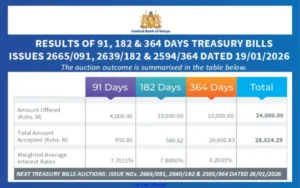It’s likely that “unforeseen expenses” is the first thing that comes to mind when we think of financial emergencies. However, not every unexpected expense can be categorized as a financial emergency.
Certain unforeseen costs can be deferred, while others demand prompt resolution. Financial emergencies are defined by the need for immediate attention. The key difference lies in urgency and impact.
To differentiate between expenses that require immediate action and those that can be postponed, consider this simple question:
What are the repercussions of delaying the resolution of this expense?
If the consequences are severe and would substantially impact your well-being, safety, or financial stability, then it qualifies as a financial emergency.
Financial emergencies can take the following forms
◾ Medical expenses: Sudden illnesses, accidents, or health emergencies often require instant attention and can result in high medical bills. These is a classic financial emergency since they can’t be postponed. Even with insurance, the out-of-pocket costs such as medication, hospital stays, or aftercare can strain your budget.
◾ Natural disasters: Events like floods, earthquakes, or fires can cause serious property damage and displace families. In such cases, there’s often no time to wait immediate repairs, temporary shelter, and emergency supplies become top priorities.
◾ Funeral expenses: The unexpected passing of a loved one can bring about emotional and financial strain. Funeral costs from caskets to venue and transport often need to be settled quickly. These expenses can easily disrupt a household budget if one is unprepared.
◾ Job loss or Income Reduction: Losing a job or experiencing a sudden salary cut can instantly create financial uncertainty. Without a financial cushion, even routine bills like rent, utilities, or school fees can become overwhelming.
◾ Family Crises: Family situations such as divorce, the illness of a relative, or supporting dependents in distress can demand sudden financial action. These moments test emotional and financial resilience — making preparedness vital.
◾ Home repairs: Unexpected home issues like plumbing leaks, roof damage, or electrical failures can escalate if ignored. Addressing them quickly prevents further costs and maintains safety, which makes them true emergencies.
It’s important to recognize that what constitutes a financial emergency for one person may not be considered as such by another individual. It depends on the specific impact the expense has on you and the potential costs associated with addressing it.
Having an emergency fund is essential for managing unforeseen situations without relying on high-interest debt or jeopardizing other financial goals.
For instance, a car repair might be urgent for someone who relies on their vehicle for work — but optional for someone with alternative transport. The key is evaluating how much an expense affects your daily functioning and security.
Why an Emergency Fund Is Essential
Building an emergency fund is one of the smartest ways to handle unforeseen events without relying on debt or derailing your financial goals.
Financial experts recommend saving at least three to six months of living expenses in a dedicated, easily accessible account. This ensures that if a true emergency strikes, you have the funds ready — not buried in an investment or dependent on borrowing.
Start small if needed. Even saving a small percentage of your income consistently builds stability over time. You can also automate transfers into your emergency fund to make saving effortless. This will help sort the financial emergency is they do arise.
Remember:
Not every unexpected bill is a financial emergency — but when true emergencies strike, preparation makes all the difference. By identifying what truly requires immediate attention and building an emergency fund, you can protect yourself from financial stress and stay focused on your long-term goals.
Being financially prepared isn’t about predicting the future — it’s about building resilience for whatever comes your way.





